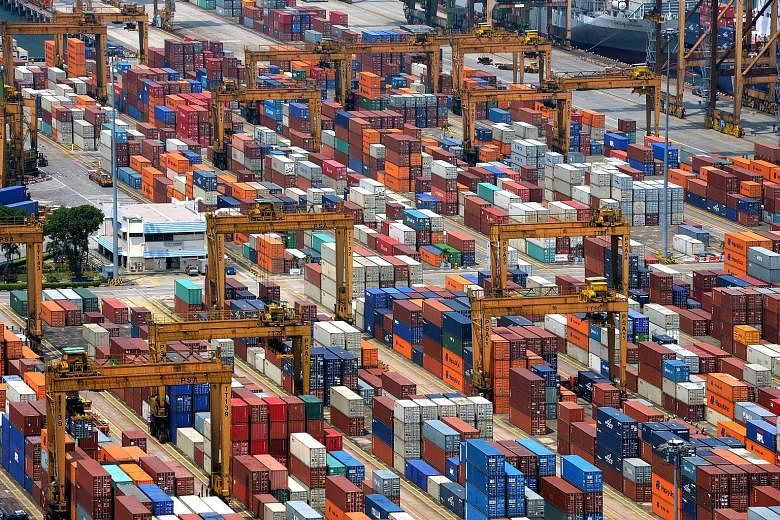Implementing uniform Customs regulations and product standards would attract more trade and investment from Europe, according to the European Union-Asean Business Council yesterday.
Council executive director Chris Humphrey told a briefing that if Customs procedures were standardised, it would be easier for companies to move goods across different Asean countries.
Ms Angelia Chew, a partner at KPMG Singapore, said: "The Customs procedures are very different country to country. Moving a truck from Singapore to Malaysia to Thailand involves three different documents and different procedures."
Asean countries were also urged to relax rules on foreign ownership and foreign competition and make less frequent changes to regulations.
The European Union (EU) published its latest trade and investment statistics yesterday.
They showed that Asean was its second-largest trading partner after China in 2013. The EU's trade in goods and services with Asean was around €238 billion in 2013. It accounted for 13 per cent of Asean's trade in goods with the world in 2013.
The EU was also the largest investor in Asean, having pumped in €156 billion at the end of 2013. In 2013, 22 per cent of investment flows into Asean came from the EU.
Singapore was the EU's largest Asean trading partner in goods last year, accounting for 25.1 per cent of goods traded between the two blocs.
Investment in Singapore accounted for 60 per cent of the EU's foreign direct investment in Asean at the end of 2013.
The Business Avenues in South-east Asia project is one way the EU is furthering economic relations with Asean, said Dr Michael Pulch, its ambassador to Singapore.
The project, started in July last year, focuses on bringing small and medium-sized enterprises (SMEs) from Europe to Asean for a week to learn about doing business in the region from local firms in the same sector and ways to collaborate.
It aims to "bring 1,000 European SMEs to Singapore, and from Singapore to a country in the region" over the next five years, Dr Pulch said.
It has focused on European SMEs in the energy-efficiency, interior design and furniture, and clean technologies sectors to take advantage of Europe's strengths in these markets and urbanisation in Asean.
Dr Pulch said the EU plans to expand the programme to include more sectors.

